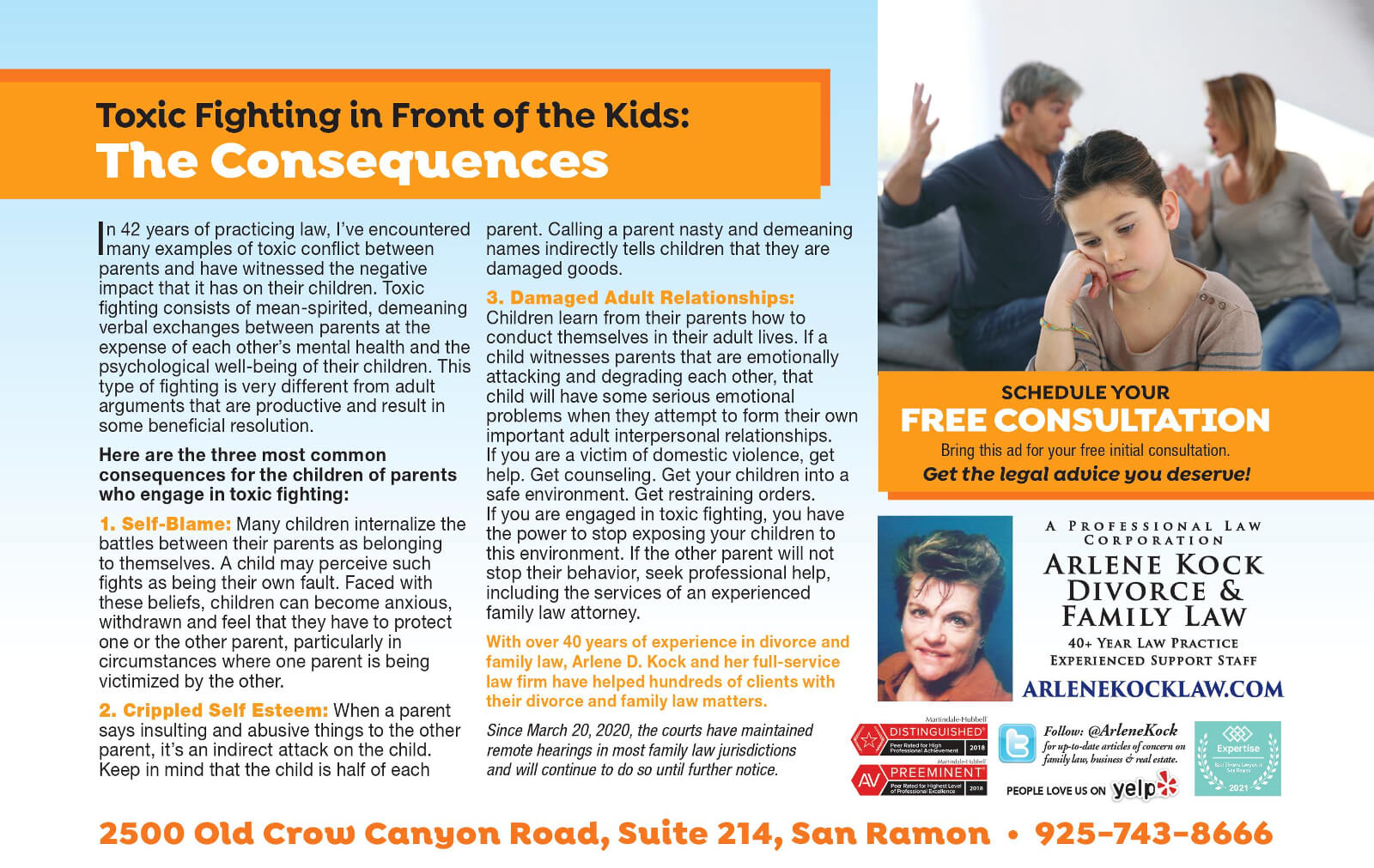In 42 years of practicing law, I’ve encountered many examples of toxic conflict between parents and have witnessed the negative impact that it has on their children. Toxic fighting consists of mean-spirited, demeaning verbal exchanges between parents at the expense of each other’s mental health and the psychological well-being of their children. This type of fighting is very different from adult arguments that are productive and result in some beneficial resolution.
Here are the three most common consequences for the children of parents who engage in toxic fighting:
1. Self-Blame: Many children internalize the battles between their parents as belonging to themselves. A child may perceive such fights as being their own fault. Faced with these beliefs, children can become anxious, withdrawn and feel that they have to protect one or the other parent, particularly in circumstances where one parent is being victimized by the other.
2. Crippled Self Esteem: When a parent says insulting and abusive things to the other parent, it’s an indirect attack on the child. Keep in mind that the child is half of each parent. Calling a parent nasty and demeaning names indirectly tells children that they are damaged goods.
3. Damaged Adult Relationships: Children learn from their parents how to conduct themselves in their adult lives. If a child witnesses parents that are emotionally attacking and degrading each other, that child will have some serious emotional problems when they attempt to form their own important adult interpersonal relationships. If you are a victim of domestic violence, get help. Get counseling. Get your children into a safe environment. Get restraining orders. If you are engaged in toxic fighting, you have the power to stop exposing your children to this environment. If the other parent will not stop their behavior, seek professional help, including the services of an experienced family law attorney.
With over 40 years of experience in divorce and family law, Arlene D. Kock and her full-service law firm have helped hundreds of clients with their divorce and family law matters.
Since March 20, 2020, the courts have maintained remote hearings in most family law jurisdictions and will continue to do so until further notice.


